Who doesn’t love a good superhero anything – movie, comic, tv series? There have been plenty of superhero films on the big screen thanks to the folks at Marvel and DC, but not as many on the small screen, and certainly none as morally questionable, exciting, gory, twisted, subversive, and fun as what Eric Kripke gives us with THE BOYS for Prime Video. Based on the comic book of the same name by Garth Ennis and Darick Robertson, THE BOYS is set in a world where superheroes abuse their superpowers rather than use them for good. And of course, whenever you have questionable morals and ethics at play, someone has to step in to cure the problems; in this case, it’s THE BOYS.
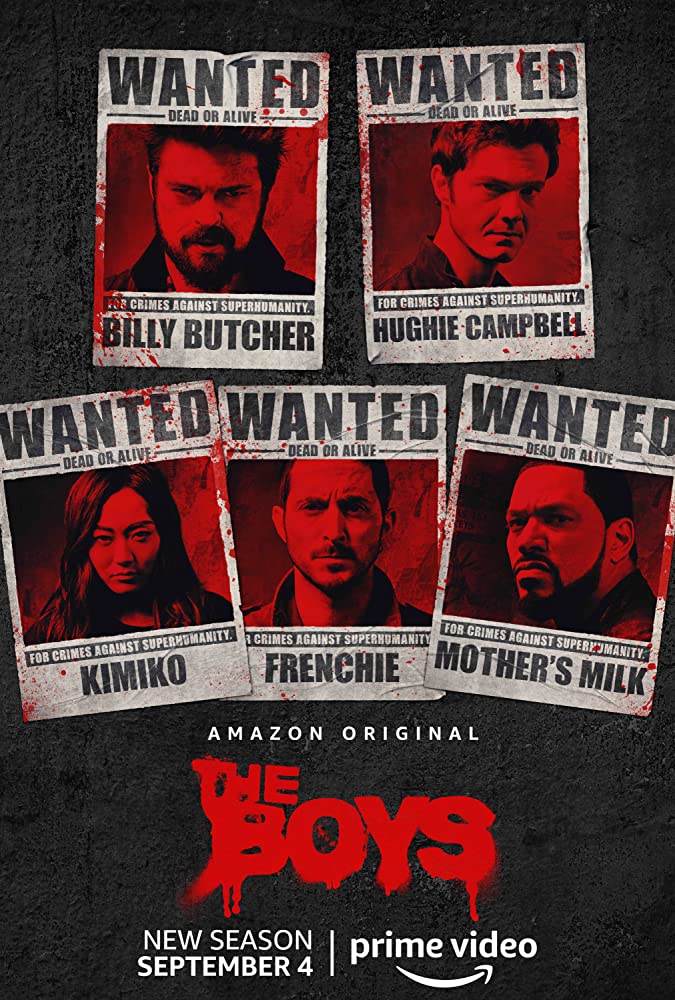
Focusing on two groups – The Seven aka The Supes who are under the control of Vought International, and The Boys led by Billy Butcher – THE BOYS tells of the adventures of Butcher and company as they seek revenge (each has been wronged by The Seven) and attempt to thwart the evil-doing and corruption of Vought and The Supes. The Boys are led by Butcher and the Seven by the egomaniacal and narcissistic Homelander.
While action and exciting visuals are mandatory whenever superheroes are involved, an even more important element, especially with THE BOYS, is sound. And in this case, Eric Kripke sought out some of the best in the business at Formosa Group with supervising sound editor WADE BARNETT and re-recording mixers Alexandra Fehrman and Rich Weingart. For Kripke, sound was a top priority in bringing this series to life, wanting focus on developing superpower sounds that felt organic and grounded, a nice contrast to the larger than life super personas, while pushing the envelope with sonically experiencing surrounding events and elements. Unlike standard broadcast network television, great latitude is given with the sound design for a streaming show like THE BOYS. New and different “graphic” sounds can be implemented or exploited to their fullest and best result, making the viewing experience of the show one that is truly sensor and palpable. With that in mind, Barnett and his team have dug deep into their sonic toolbox of creativity to deliver elements that not only define and identify with characters but with specific superpowers, creating aural properties that give these superpowers “life”.
Picking up his first Emmy nomination for Outstanding Sound Editing for a Comedy or Drama Series (One Hour), an honor shared with his entire sound team, WADE BARNETT clearly has some superpowers of his own. As we count down to Emmy night, I spoke with Wade about the sound design and editing for THE BOYS, going in-depth on the construction and development of some of the most challenging episodes and scenes of this first season.
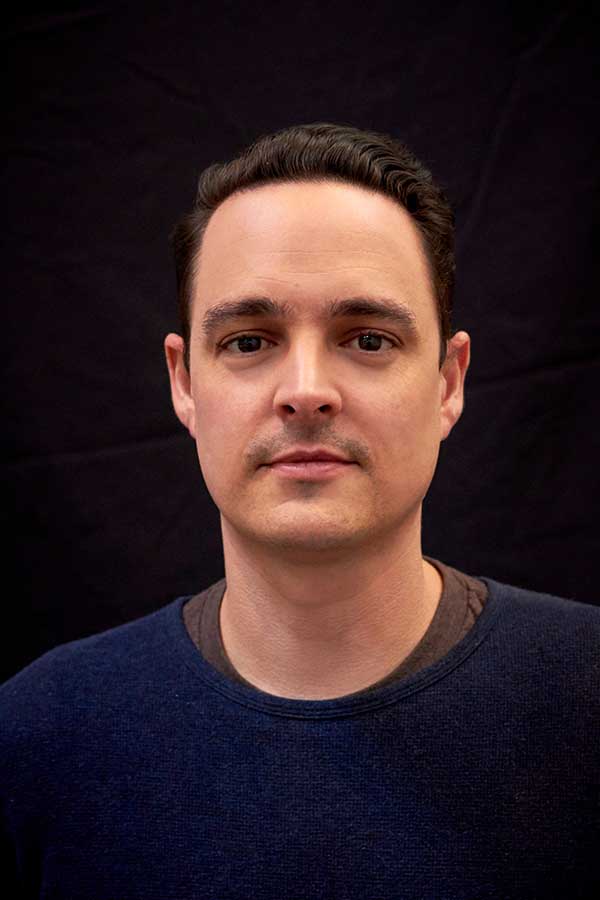
Something that is so interesting about THE BOYS is the sound, the sound design, and the fact that each one of these superpowers essentially has its own sound motif or sound design/sound effect which throughout the series controls a lot of the emotions we see and feel. And that emotion is based on how you’re calibrating that specific sound in terms of what else is happening in a scene.
Thank you for saying that. That’s really nice. That’s something that we were really focused on is trying to help the sound feel the emotion of what the characters are experiencing. In each scene, the sound can help tell that story. So whatever emotion Starlight’s feeling, whenever she’s drawing in and having her freak-out stress moments, having this kind of helped tell that story. That’s something that we were really focused on the whole time. So, thank you for saying that.
That really strikes me because we’ve seen so many superhero movies, TV shows, going back to the days of The Adventures of Superman, even back in the day the original Superman and sound has always come into play. When Superman’s leaving there’s a “whoosh” of wind or something. Then with the Avengers and all the different powers, we never have a signature sound for a particular move or power. So to actually watch a show where sound is so key in defining the power and the individual who holds that power, I’m really compelled by that.
It was a lot of fun. There’s a lot of different aspects of this show that really give us opportunities with that. One that comes to mind is Homelander’s X-ray vision. Depending on what he was doing while he was using his X-ray vision, we kind of augmented the sounds that he had while he was looking through whatever he was looking at, to kind of tell the emotion of what he was feeling in that time. So when he’s like looking through at Elizabeth Shue’s Stillwell, that was a very interesting connection between those two characters, but watching when she was using the breast pump and it’s like an object of his obsession with her and we’re more internal and dark as he was looking through. It was more like his own headspace. We got inside Homelander’s head for that moment. Then when he’s outside using the same powers, looking through the van we went a totally different direction. So, using a template of the same sounds, but featuring different ones to help tell the emotion of the moment was something that we spent a lot of time working on. So yeah, it was a lot of fun.
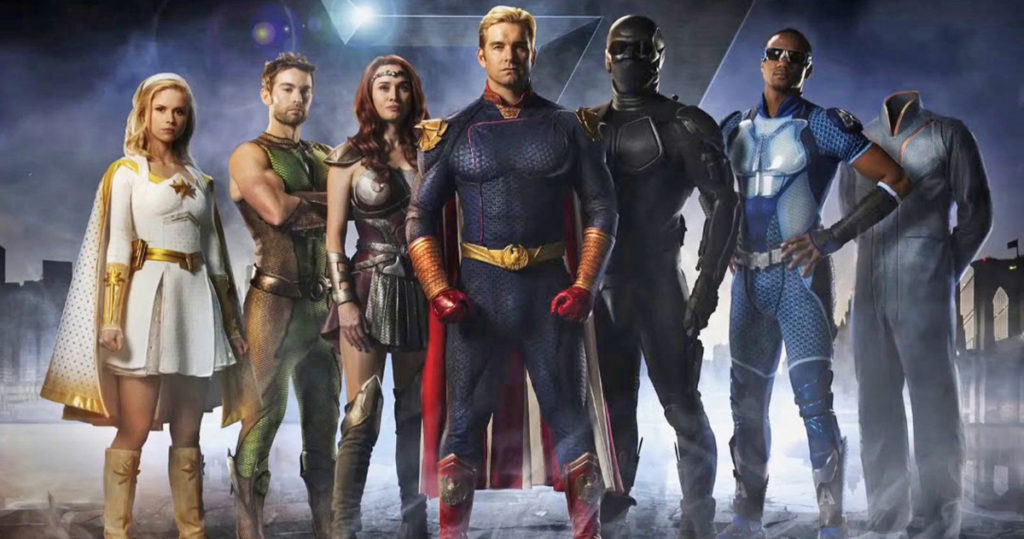
How early did you start working with the sounds, because I am suspecting that you had to have these sounds in place before filming started, or you went into post and it was going to be stuff that was identifiable to carry all the way through the series?
Right. Yeah. So Erik Kripke, the showrunner, he loves working with the sound design, which is really great for us because we spend a lot of time working on it and polishing it and getting it right, so before we even got the first turnover of the first episode, we got little [bits]. Sometimes they would just start off as just like kind of drawings, or VFX, super early visual effects, animatics, and stuff like that. Meeting with Erik Kripke, he would tell us his initial thoughts and certain moments he kind of wanted us to take a stab at and see where it went. Then he had his notes on it. I guess this was in the summer of 2018, so it was a long time ago, but we started in that summer of 2018, maybe three months before we even started the work on the first episode, just brainstorming ideas back and forth with Erik trying new things, him giving notes, us going back, trying a few new things, scratching off things that didn’t work, adding a few different new layers. And we did that with all of the main superheroes prior to the first episode even starting. Then, throughout the season as new little superheroes or moments would pop up, then we would just kind of tack on them as they came.
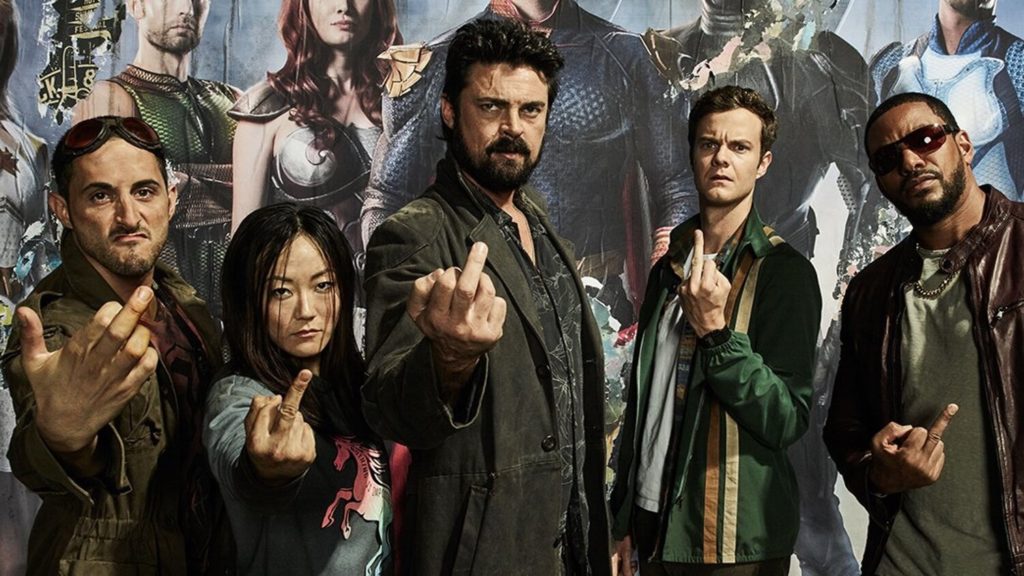
You create those sounds, but then you’ve also got to work it into a “believability” with what’s happening within the stories themselves as the boys, our dear beloved vigilantes, are going after The Seven. Really stand out, I think, as to the work of you and your team, is perhaps episode four, “The Female of the Species”, where you’ve got Homelander and Queen Maeve and they’re trying to stop a plane. You’ve got air sucking out, you’ve got windows shattering, you’ve got turbulence, you’ve got people screaming, you’ve got music, you’ve got slow-mo kicking in in places. And this type of sonic mix happens in a couple different episodes. It’s very interesting how you calibrate and modulate and mix all of the different elements without sacrificing anything. How challenging has this design and mix and editing been in comparison to some of the other shows that you’ve done before?
Well, it’s funny you bring up that scene on the airplane because that was one of our most challenging scenes in the whole season. Once the windows break, the way they shot that was with giant wind machines on set to get their hair to move correctly, to get the debris to be flying around the plane. So to get that to look right they had to use these really powerful wind machines which made all of the production dialogue completely unusable. We had to build out that whole scene from scratch and rerecord all the dialogue in ADR. All the groups are recorded in the loop group recording sessions. So, all the background voices are added. Luckily the actors on the show are really great with ADR because they’re screaming at each other and there’s so much emotion. So then we had to build up all those with the plane and that the wind. Getting it right was super challenging. So it’s interesting that you bring that up because there’s a lot of different difficult aspects of this show in particular. The sound design is the most obvious one, but that scene, getting the crowds right, there’s a lot of crowds, there’s a lot of different languages that we were using that we had to record in loop group; the show is so dynamic. It’s almost like episodes are just a little mini-movies. It’s not like you can just use a template like you can on a kind of network TV show. You have new things in each episode to tackle.
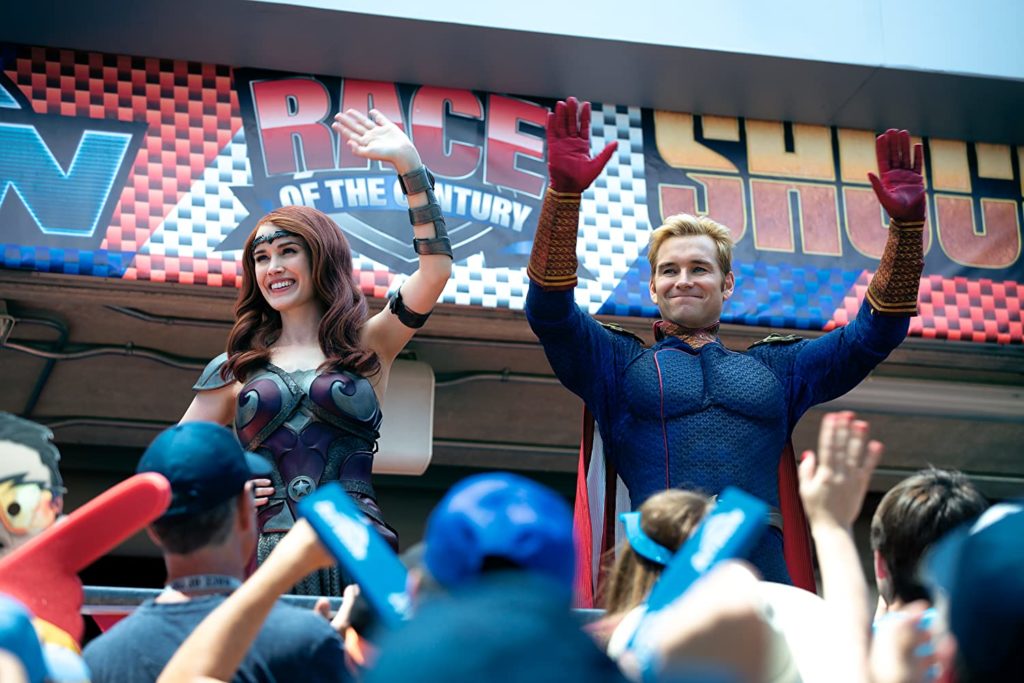
I’m also hearing a lot of sounds throughout the show, call it a “graphicness”, that I don’t normally hear if I’m watching a standard network show. Am I just hearing things or is that correct?
Exactly. The show is dark, obviously, so the gore in this show – the gore, the head smashes and that kind of thing – is really a part of the graphic novel and it’s a part of what the show is. So we’re very fortunate to be on Amazon where we can kind of get away with anything. And the showrunner is pushing us to push the boundaries and try to push it, trying to go as far as possible with all that gory stuff, just to really help tell the story. That’s what the show is and, like you said, in a lot of network stuff you would be asked to pull that back. You’d have standards and practices kind of emailing producers about that kind of thing. We didn’t have that problem on this show, luckily.
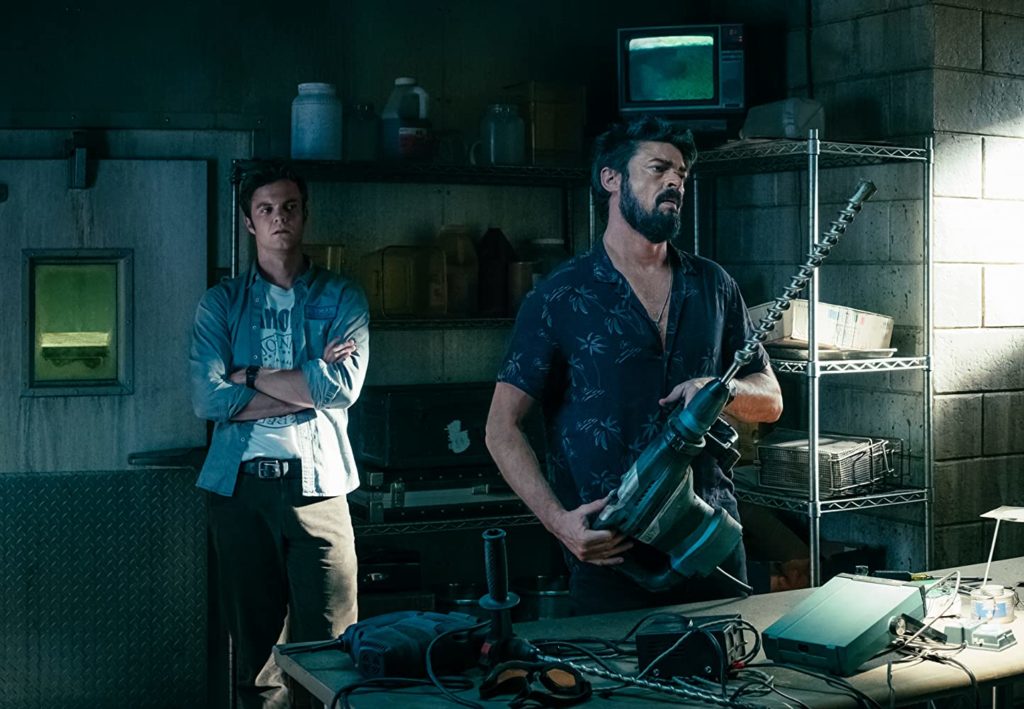
But what you also have done with the editing here is – I also look at something like the big race in episode three with A-Train and Shockwave where somebody is going to prove they’re better than the other one. This is another example of so much happening, Wade, in terms of sonically with the crowds and the dialogue. And you have fun with the sound as well. I watch it and see moments between Maeve and Homelander, who thinks he’s just the best thing on the planet or the universe, and then you insert sound, you edit sound into the scene that is totally contrary to what he’s doing or saying. So you’re essentially getting a crowd reaction or a fan reaction, like booing a romance, or booing a moment of supposed tenderness for him towards Maeve. I find that so compelling as I watch and listen. Are you guys left to your own design to come up with these moments sonically?
That scene took a lot of work and our mixers, Rich Weingart, Alex Fehrman did a great job. There is a certain level of subjectiveness to the way that those types of scenes can play. What do you push? What do you feature? Because there’s so much going on that you have to make choices about which things to lower and there are a million different ways to approach it; especially if there’s music going on also. So there are certain moments where, in the spotting session Erik Kripke the showrunner would tell us, “I want to hear a reaction to Maeve and Homelander there,” or whatever. So there are specific directions, but then there are also certain things that we had to just figure out on stage to help tell the story. I remember there’s a shot of Butcher and it’s when we’re kind of going inside of his head and he’s seen Homelander and it’s instilling the rage in him. So we had to kind of go into his head for a little moment, and then the race happens. And there’s crazy crowds and also elements of the sound design that you want to feature. Some of those elements in the sound design are super nuanced and hard to get to play over loud, large crowd sounds. The weeding is really difficult.
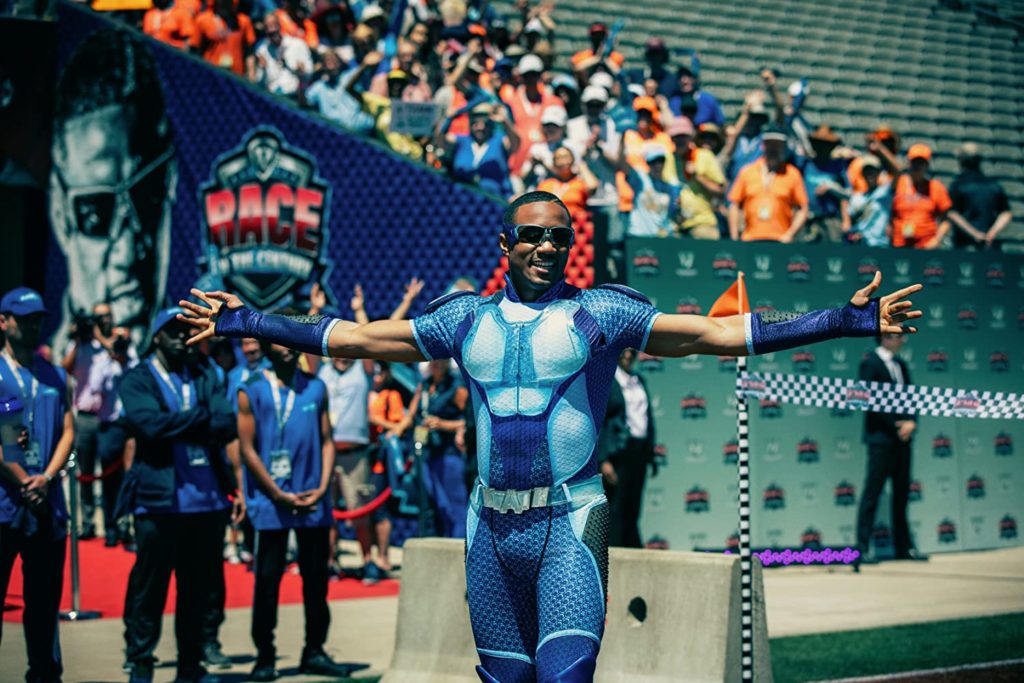
But you’ve got quite a few situations throughout the series where you’re really combating a lot of different sonic elements. This is not one of those shows where you’ve got a lot of one-on-one dialogue sitting in a living room. You’ve really got a battle with the multiplicity of elements that come in play here while still maintaining that emotionality through sound.
Right. Yeah. You nailed it. There are so many. Each episode brought us a new bag of tasks to tackle and the locations change so much from episode to episode, so, we had to build out all different ambiances and find new ways to get each team to play. We were in the Seven Tower some throughout the show, but other than that we’re constantly changing to new locations and each location has a new task for us to tackle.
Episode eight, the season finale, you really got me. That one is stellar and it feels like it is more stripped back sonically. You’ve got a lot more quiet moments. There’s sound there, but you’ve got it modulated, dialed way down, which makes it creepy, as it should be. The sex scene between Homelander and Stillwell? That’s creepy.
Most definitely.
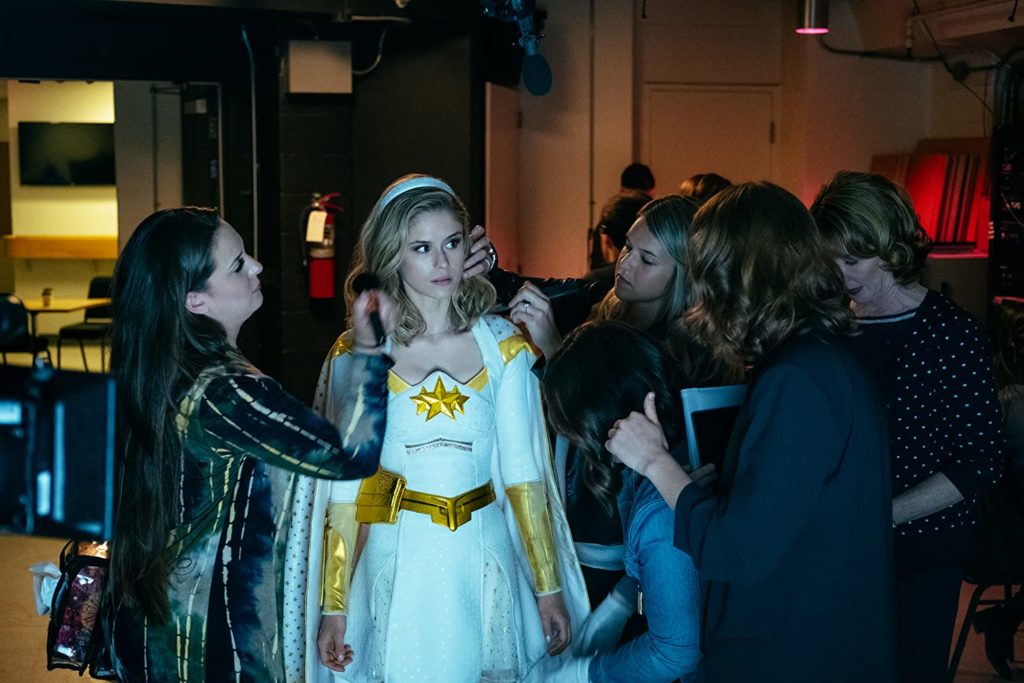
There’s a hint of sound in the background, ambient sound, but you haven’t dialed it way back. And I love that play within the series, but it’s very prevalent in episode eight in several points where it’s almost the absence of sound is giving us the emotion.
Totally. I feel like that’s one of the most effective tools in sound is using silence effectively, when you get the audience to lean in a little bit and listen really closely. Sound is an exciter. Stories aren’t as exciting or interesting if it’s just full sonic level the whole way through. Having the peaks and valleys really helps tell the story and gives it that dynamic range that you’re looking for, and it helps balance the show out. So, using silence is sometimes one of the most effective tools to establish that, or to get that effect.
As the supervising sound editor, what throughout this series was the most challenging aspect of the sound process, going beyond finding the right sound for each superpower? And I still say my favorite is the one that you came up with for Starlight. We really get to see that in episode eight when she creates that umbrella of energy. We get to hear that. But what do you say is the most challenging, as a supervising sound editor, in bringing this series to life?
I would say that the main thing that we tried and that was the hardest to do was to make all of the superhero sounds organic; to tell the emotion like we talked about. A lot of times when you’re working with sound effects and as they relate to superheroes, a lot of it tends to become more electrical or more mechanical or more transformery sounding. It just kind of somehow naturally tends to be a lot of the sounds end up going that direction. And that’s not what we wanted to do. We wanted to keep it more organic and whatever the superhero is doing, the sound was coming organically from their body. That was something that was really important to Erik.
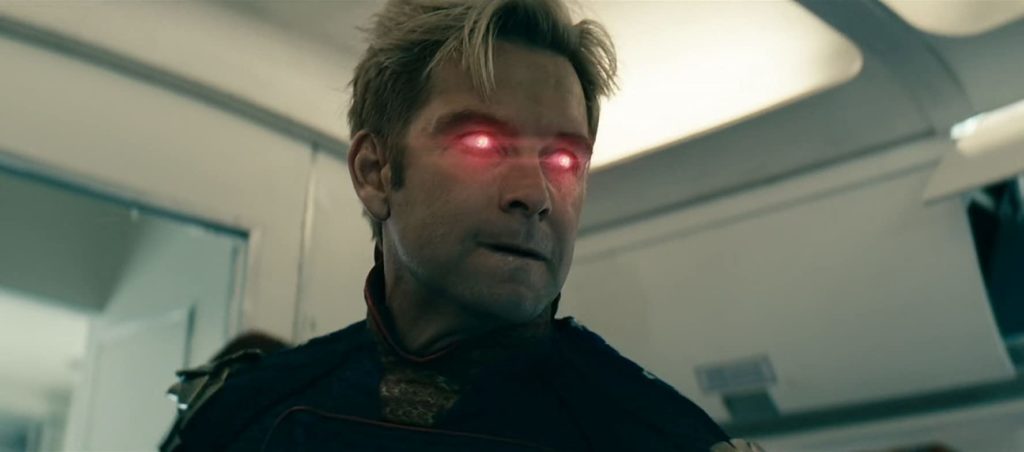
How do you find those organic sounds? I mean, granted you’ve got Foley for a lot of sounds that you can do, but to really make these inherent within each being, I’m curious how you actually find those organic elements?
A lot of times it’s creating them. It’s a lot of layers. If you would see the editorial sessions on some of these sounds, there’s so many sounds layered on top of one another. Like A-Train has actual train sounds layered into his elements and some of them are sped up and slowed down and processed and pitch-shifted and that kind of thing. In Homelander’s eyes, there’s eggs sizzling to get that slight laser sizzle, but to also have it not sound like full-on just electricity. Different characters have different moments, but it’s really just a process of trial and error to find what works and what doesn’t.
How early do you get an episode to start working on the sound edit?
Season one came out in mid-July that year. We started working on the sound the summer before, like I said, doing the sound design and then we started working on the individual episodes, I believe, in October of that year. So, we’re a full 10 months early before the air date. We’re starting the first episode now. It’s a lot of work. It’s not your typical TV show. A lot of these runtimes are over an hour long. It’s a lot of work, but it’s fruitful.
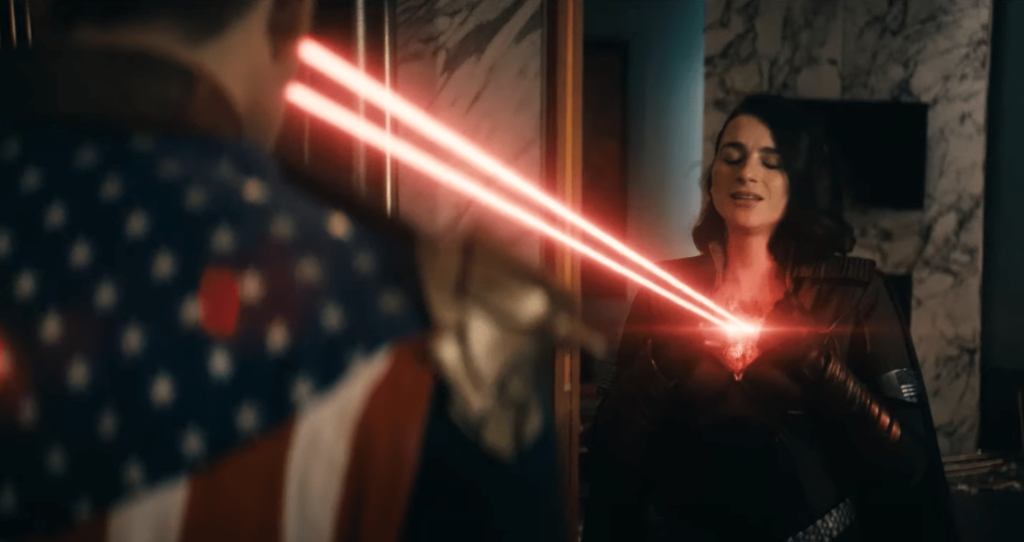
So I have to ask you the obvious question, Wade, how excited were you, are you, about the Emmy nomination?
Oh my God! I have to tell you. I was up in the Redwoods camping. I had a little bit of cabin fever, so my girlfriend and I drove up and did an isolated quarantine camping trip and ended up in the Redwoods. I came out of the Redwoods and I got back into cell service and I had about 60 text messages on my phone. It was just one of the coolest things I’ve ever experienced. It’s such an honor to get an Emmy nomination. I certainly have never been nominated before, so something that I had never experienced, is just such a cool, cool thing to have happen. It’s such an awesome category to be in. There are so many shows that are in our category that are so cool; and shows that I respect a lot. Just to be included in that conversation is an honor. So yeah, it’s been a really cool experience.
I love season one. My jaw dropped with the final scene with Homelander saying, “Hi, I’m your dad.” And poor Butcher is staring and going, “What??”, so yeah, that’s a jaw-dropper.
Totally. I was not expecting that at all. The whole relationship between Butcher and Homelander is special because it brings out a lot of emotions that kind of we’ve all probably felt at one point or another, whether it’s jealousy or anger or a number of different things. But that whole relationship definitely takes off in season two. It’s so cool.
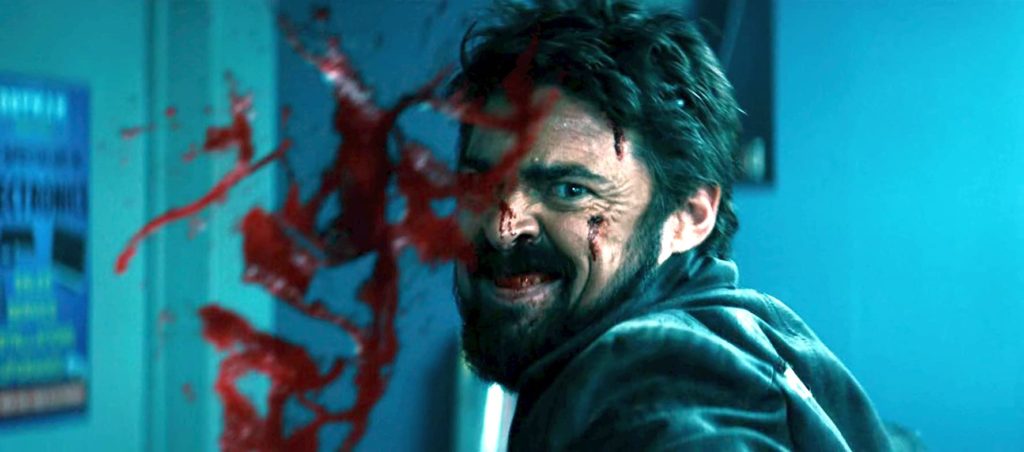
So now what, dare I ask, what can I expect sonically with season two?
Oh, season two’s awesome. We finished it not that long ago, maybe mid-June. There’s a new character that you’ve never seen before. I’m not sure how much I’m allowed to give away there, but we have Stormfront, which is a new Supe coming in and I think that’s already been released publicly. There’s a bunch of new characters that we have to tackle and a lot of them are a lot of fun. We have some of our old tricks, but there’s a lot of new locations. I don’t want to give too much away, but there’s a whole new set of tasks for season two. I can say that they did not step off the gas pedal at all with season two. It just picks up right where it left off. It’s an amazing season. If you like season one I think you’re going to love season two.
by debbie elias, exclusive interview 08/12/2020












